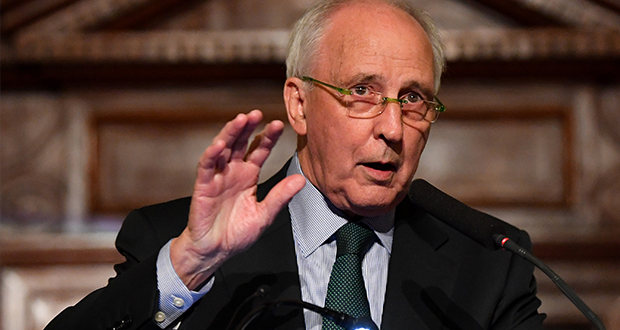Former Prime Minister Paul Keating has told the aged care royal commission it should consider recommending a HECS-style loan for older Australians to pay for their care.
At today's hearing, Keating said the approach was superior to a pre-funding model, like the longevity levy he once thought Australia needed. Under that option, Australians would pay a levy, “some people might die at 56 or 60 and their contribution funds the person who lives to 95 or 100”.
“It’s a classic insurance system," he said. “But then you’ve got issues about people’s ability to pay, who should get the funding, how is it levied, what is returned to the Commonwealth, etc.”
Keating said he has since shifting his thinking to the need for a post-funding model, like HECS.
“Higher education charge is a post-paid system. These are loans advanced to students on... mostly an income-contingent basis. So if a student goes to university then leaves and then has gainful employment the tax system puts a garnishee on the wages and pays the university debt down. If in fact a person never had any employment thereafter the loan would never be repaid.
"So if we were to move and think of aged care as a post-paid system, the Commonwealth could then advance as loans to every aged Australian so much as to meet their needs in support services to stay at home or alternately in care accommodation.”
Keating explained that every Australian would have an account, to which the Commonwealth would advance money to pay for aged care. Upon the person’s death, there would be a credit on that account to be paid from the estate of the deceased person.
In the event the assets are not available, Keating said the Commonwealth would pick up the tab.
“It’s a very nice way of working out what the Commonwealth should really pay vis-à-vis the residual assets of an aged person, be it superannuation or their bricks and mortar assets, etc.”
Commissioner Tony Pagone raised the concern that people would be encouraged to divest themselves of assets before they got into the system.
Keating conceded that it was an issue that would need to be addressed in policy, but added he believed that Australia would have a better chance of getting such a system up and running than a pre-funding option like a longevity levy.
“What the advantage of post-funding does – it provides what is needed.
“I think that the task of the commission should be to try and articulate what is needed,” Keating said. “The commission should be more worried about the entitlement and the need than it should be worried about funding it.”
Do you have an idea for a story?Email [email protected]
 Aged Care Insite Australia's number one aged care news source
Aged Care Insite Australia's number one aged care news source

